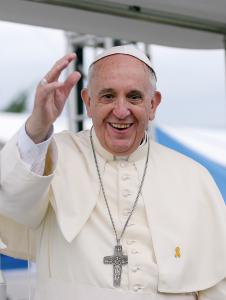
I hoped interfaith methods would work to bridge political divides. After five years of offering courses and workshops, I’ve realized they don’t. Here are three reasons why.
Offering Solutions
I graduated as an interfaith minister in 2017 and was dismayed by the public rhetoric in my adopted country. The anger and division appeared unsustainable. I wanted to do something to help calm the seas, even in a small way.
My interfaith toolbox appeared ideal for this task. It included appeals to our shared humanity and a variety of dialogue guidelines to help people create trust. I started by offering talks at local places of faith here in Austin and then began a five-year relationship with Charter for Compassion, offering online workshops to people from around the world. I even wrote a book titled Co-Human Harmony: Using Our Shared Humanity to Bridge Divides.
Could It Help With Political Divides?
My courses got high marks from participants, but some complained that they were too focused on good relations between different faiths and beliefs.
I, for one, stood outside of organized religion all my life but saw great benefit from attending numerous interfaith events and was a regular at dialogue programs here in Austin.
However, I conceded and created a version of the program aimed at bridging all types of divides, especially political ones.
Didn’t Work
The approach didn’t work as I had hoped. Why? Because politics are decidedly different from interfaith relations. Still, I couldn’t quite put my finger on why the program didn’t work that way until after I held my last one in January this year.
The three main reasons are:
- control of resources
- the two-party system
- gerrymandering
Reason 1) Control of Resources
In politics, the winning party controls the public resources. This affects everyone in the town, district or country, not just those who voted for the party in power. Unlike different faiths, where people can agree to disagree and live together without affecting each other’s livelihoods, political power controls everything from the social safety net to laws and beyond. It’s harder to “live and let live” when other people’s decisions directly influence your everyday life.
Reason 2) The Two-Party System
In the interfaith world, it is much easier to encourage tolerance for others when there are many religions. In comparison, the binary political system in the USA does not reflect the diversity of its citizens but rather forces everyone to make choices for or against. No shades of gray are allowed.
To make things more complicated, many citizens have started labeling themselves Republican or Democrat rather than saying they vote for said parties. This self-identification in a binary system creates an immediate dislike for the opposite. As I’ve written about in this publication and talked about in my seminars, a strong like for one thing can quickly turn into a strong dislike for the opposite. This is where we find ourselves in this country, with no end in sight.
In my birth country, Iceland, there is a multi-party system. People can sit around a table and argue politics without immediately pinpointing each other as this or the other. Many policies overlap, and political parties must work together to form governments. As a result, there is less polarization.
Reason 3) Gerrymandering
It took me a while to understand the impact of gerrymandering on the political atmosphere. In short, because districts have been gerrymandered to reflect one party over the other, the contest in the primaries is no longer between people vying for electability in the general election. No. They know that whoever wins the primary will win the general election. Therefore, they only need to appeal to the party’s most extreme elements and get them out to vote in the primaries. As a result, candidates become more extreme. The binary system then forces people to choose for or against in the general, creating a “better the devil you know” mentality because of distrust.
Interfaith Methods Still Work
I still believe in the interfaith methods I have been championing for the past five years. The more we focus on our shared humanity and interact with each other, especially through dialogue, the more trust we create between faiths and the more we improve relations. I encourage everyone to participate in such efforts, even if they don’t belong to a faith group. The practice has strengthened my belief in humanity.
That being said, it is also important to admit that they don’t work in politics, at least not in the current system or political climate.
Gudjon Bergmann
Author and Mindfulness Teacher
Amazon Author Profile
Recommended books:
- Monk of All Faiths: Inspired by The Prophet (fiction)
- Spiritual in My Own Way (memoir)
- Co-Human Harmony: Using Our Shared Humanity to Bridge Divides (nonfiction)
- Experifaith: At the Heart of Every Religion (nonfiction)
- Premature Holiness: Five Weeks at the Ashram (novel)
- The Meditating Psychiatrist Who Tried to Kill Himself (novel)
Picture: CC0 License

















